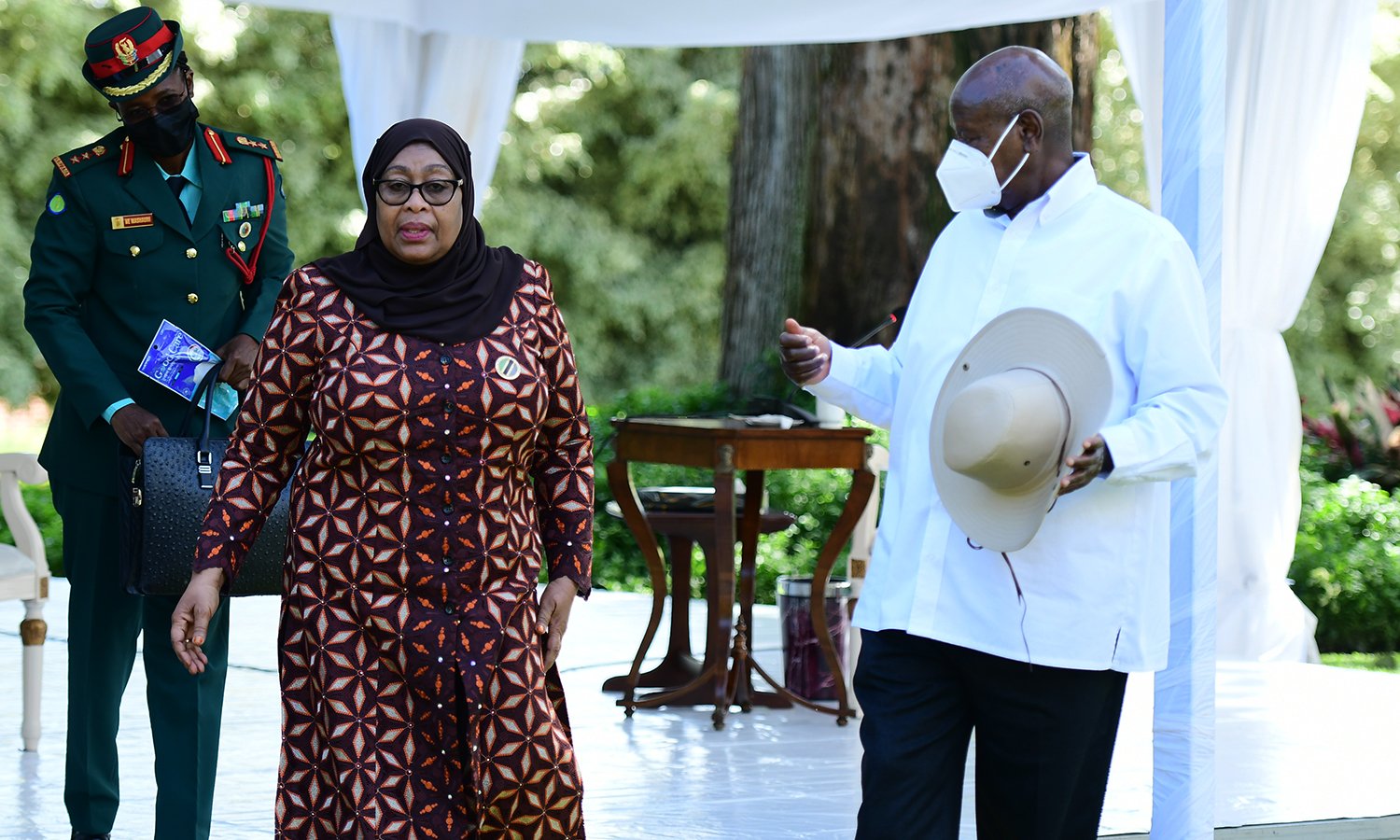Prime
Uganda, Tanzania plan for joint pipeline to Kampala

Energy minister Ruth Nankabirwa
What you need to know:
- Energy minister Ruth Nankabirwa said a final decision would be made after the conclusion of the ongoing talks between the two countries.
- The talks have now lasted for two weeks.
Officials from Uganda and Tanzania are discussing plans to jointly construct a pipeline to carry Uganda’s petroleum products from Tanga Port in Tanzania to Kampala.
Energy minister Ruth Nankabirwa said a final decision would be made after the conclusion of the ongoing talks between the two countries.
The talks have now lasted for two weeks.
“We are in discussion with Tanzania to see how to work together to build a pipeline [that will] transport [fuel] through the Tanzanian route [but] we haven’t concluded yet,” Ms Nankabirwa told Daily Monitor by telephone last Friday.
The Ugandan delegation at the talks comprises senior officials from the Ministry of Energy and Mineral Development, and the Uganda National Oil Company (Unoc).
The new development comes weeks after Ms Nankabirwa informed journalists that her ministry had embarked on discussions with Tanzania following Kenya’s continuous frustration of Uganda’s planned sole fuel importation takeover by Unoc.
Discussions
“So far, I have met the President of Tanzania. My President sent me as an envoy and we are in discussion,” Ms Nankabirwa said on January 22.
She added: “We know that the alternative route might be expensive because of the logistics that are involved, but we also know there is a possibility of negotiation with the Government of Tanzania to waive some taxes.”
Ms Nankabirwa said the discussions with Tanzania are ongoing as the country awaits the rulings of the Kenyan and East African courts on activation of the new fuel importation plan.
“We are still waiting for the East African Court of Justice ruling and the Kenyan Court … We want the products to be competitive but more importantly be assured of supply; we don’t want the country to run dry,” she said.
Under the new importation plan, the government empowered its state-owned Unoc to take over sole importation of petroleum products into the country and later sell to more than 40 local oil-marketing companies.
Transition
Uganda plans to change its current fuel importation system of Open Tender System (OTS) to Government-to-Government (GtG) importation method.
The Government under the GtG system empowered Unoc to import all petroleum products and later sell to local Oil Marketing Companies (OMCs) unlike the OTS where Uganda OMCs would buy from their Kenyan counterparts directly.
Uganda’s Parliament enacted the Petroleum Supply Amendment Act, 2023, last October and was signed into law by President Museveni the following month. This was set to activate the Unoc plan in January this year before Kenya frustrated it.
Through the arrangement, Unoc was supposed to use the Kenyan Pipeline to transport her products to Kisumu where Ugandan trucks would pick them up, a decision the Nairobi authorities have frustrated.
The Kenyan state-owned Energy and Petroleum Regulatory Authority (Epra) denied Unoc the import licence before the two countries engaged in diplomacy, prompting the Kenyan Minister of Energy to direct Epra to waive the requirements they had placed on Unoc. But before this could be done, some concerned Kenyans ran to court, which blocked the whole exercise.
Uganda filed an application requesting the High Court in Machakos, Kenya, to dismiss the case where two Kenyan citizens; Royani Energy Ltd, John Kinuthia Mwangi, and Acacia Ridge Construction, successfully on November 7, secured an order from the same court blocking Epra from issuing Unoc with the required licence.
Unoc’s application was first heard on December 6, 2023, and then pushed to December 19, 2023, then again to January 22 this year, where the same court extended its judgment first to February 12 and then March 6.
Ms Nankabirwa said her ministry could not just sit by and wait on the courts, but would rather seek alternative routes to avert any likely crisis.
“Tanzania is a security route and if Kenya opens up and gives us the certificate, we will move with them, and divide the volume between both countries,” she said.
Mr Peter Muliisa, Unoc’s head of Legal and Corporate Affairs, said the pipeline, if constructed, would increase the volume of imports through all the routes.
“Our plan is not to close doors to Kenya but rather to use the Northern and Southern Corridors. We are optimistic that the court in Kenya will rule in our favour and activate the planned fuel importation,” he said.
The Energy ministry said in 2023, Uganda imported 2.5 billion litres of fuel worth $2b (about Shs7.7 trillion). An estimated 90 percent of these products passed through Mombasa and the remaining 10 percent through Dar-es-salaam, Tanzania.




